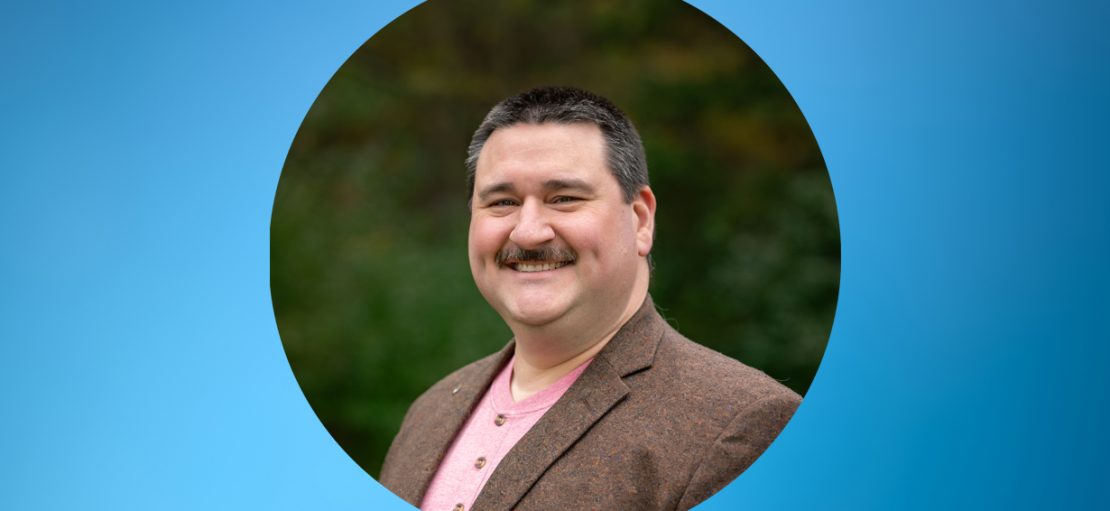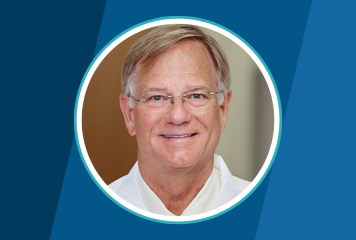Andrew Calvin, MD, MPH, is an Associate Professor of Medicine at the Mayo Clinic College of Medicine and Science, Chair of Education at the Mayo Clinic Health System and Medical Director, Accreditation and Compliance, for the Mayo Clinic School of Continuous Professional Development. He is board certified in Internal Medicine and Cardiovascular Disease; he is also a Diplomate in Adult Comprehensive Echocardiography and a Fellow of the American College of Physicians and the American College of Cardiology. Dr. Calvin joined the Cardiovascular Disease Longitudinal Knowledge Assessment (LKA®) Approval Committee in July 2024, and previously served as a member of the Cardiovascular Disease Item-Writing Task Force.
Can you share a bit about your journey to becoming a clinical cardiologist? What inspired you to specialize in cardiology?
I was always interested in finding ways to reduce the leading killer of Americans. When I learned I could work one-on-one with individual patients to try to bring them the best science available, then match it with their situation and preferences, that seemed really powerful to me. I spend the majority of my time doing clinical cardiology, which I consider to be a gift.
Where do you feel most at home in your work? As researcher, educator, clinician? What drives you and keeps you motivated?
I feel most at home in the clinic or in the hospital. Homebase is with a patient and their loved ones, navigating the complex data we have in cardiology to figure out the best approach for them.
I really cherish the opportunity to form long-term relationships with patients. I get to see patients on their worst day, often in the ED or the critical care unit, and follow them through to the operating room, the hospital and back to the clinic. Helping them walk through this journey and seeing them return to full ability is very rewarding. I love seeing patients come back and hearing about the grandkid’s birthday party they got to go to, the wedding anniversary, the ball game they went to with their wife, hearing about the parts of their life they can now live without limits because we were able to successfully manage their disease.
What does your work as Chair of Education and Medical Director, Accreditation and Compliance at the Mayo Clinic School of Continuous Professional Development entail
I view these roles as fundamentally an opportunity to serve my colleagues at the Mayo Clinic and to do the best we can to educate the next generation of physicians and healthcare professionals. It’s an extension and part of the work I want to do with ABIM, to support our colleagues so they can learn and adapt and be the best physician and cardiologist they can be. Figuring out ways to empower our physicians to do the best job they can is fundamental to what I do in education.
What was your experience serving on the Item-Writing Task Force? What, if anything, surprised you or gratified your expectations?
It was comforting to know I was working with a bunch of other clinically oriented cardiologists who were just trying to come up with the best questions possible for our colleagues. It felt a lot like the best part of clinical cardiology in that it was team-based and all working for the same thing. There is a lot of support and there are a lot of resources you can tap into.
What goes into writing a good test question? What challenges are specific to cardiovascular disease?
I find myself going back to home base, either the clinic or the hospital, such as a patient encounter where I had to navigate through decision-making within a particular topic and then write a question in a way that’s clear and realistic and something we see on a daily basis. It’s also important that the answer is clearly the correct answer for the scenario. As item-writers, we try hard to write questions that are fair and straightforward, that any board certified cardiologist would be able to answer correctly.
I think the challenge is in figuring out where general internal medicine ends and general cardiology begins, and then where it gets into more specialized areas. Keeping questions focused on general cardiology is a challenge—it’s such a broad discipline. I’ve maintained my internal medicine certification and find that really helpful both clinically and as I think about test questions.
What made you interested in joining the Approval Committee? What are you hoping to learn from this experience?
I saw it as an opportunity to work for my colleagues—fellow clinical cardiologists—who are seeing patients every day, who want to maintain certification and do the best they can for their patients, and help produce an evaluation tool that is an accurate representation of what the practice of modern clinical cardiology should be.
It’s a good opportunity to continue to think about the practice of cardiology and remain up to date on a broad range of topics. I’ve learned things from colleagues from across the U.S. and I’ve tweaked my practice in a few ways.
How do you stay grounded and maintain balance outside of your work as a cardiologist?
It comes back to home base, which to me is sitting down with a patient and their family, and talking about what we can do to keep them as healthy and active as we can. That means knowing the latest science, tailoring it to the patient’s individual needs and preferences, and hearing from the patient about what this experience looks like and feels like. Those experiences help me reflect upon the academic work we do, to see developments in evaluation and treatment of cardiovascular disease and be able to talk to patients about the pros and cons of new techniques and treatments that we didn’t have just a few years ago. That’s really exciting.
What do you think is most important for diplomates to know about you?
I like to think I’m a clinical cardiologist first and foremost—that’s the main part of what I do, that’s my identity. I want people to know that I consider the opportunity to serve on the Approval Committee to be an opportunity to serve my fellow clinical cardiologists. I would encourage others to consider joining ABIM.



